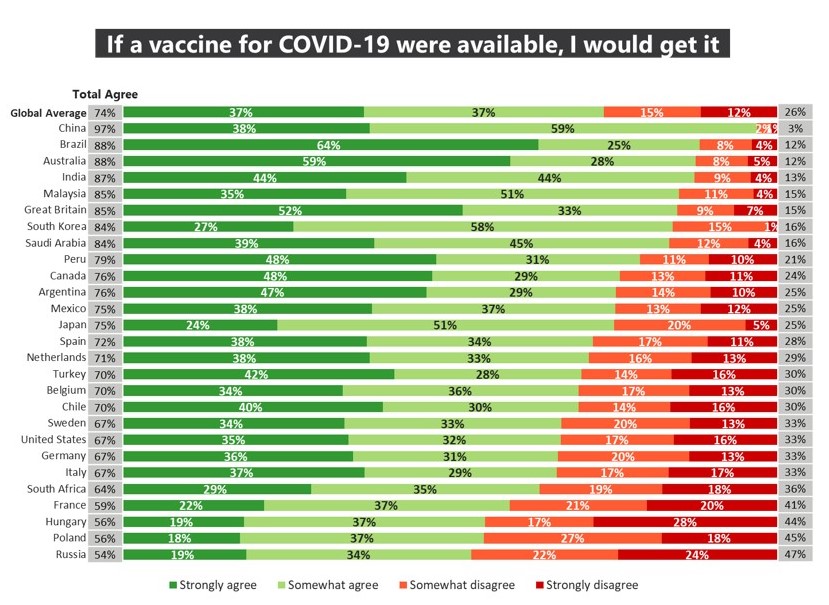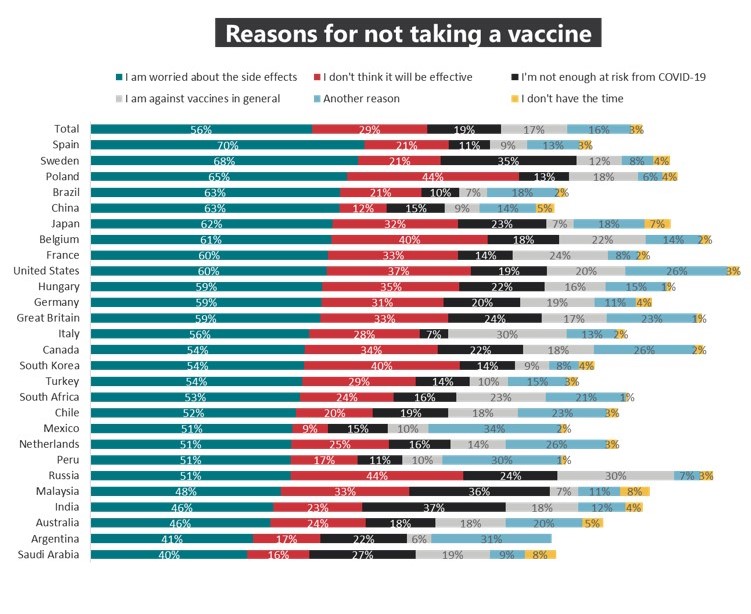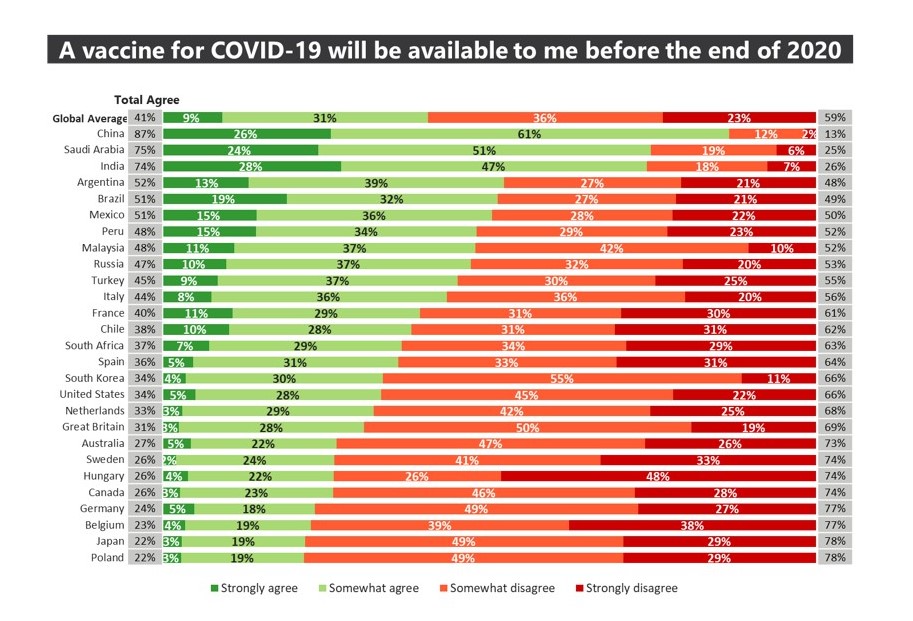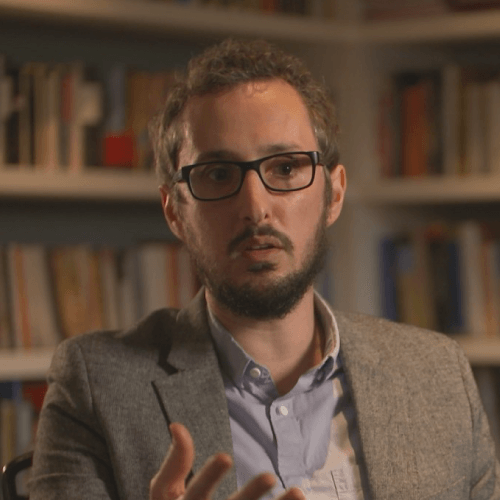Russians, Poles and Hungarians least likely to take COVID vaccine, finds global survey

Only just over half of Poles (56%) say they would take a vaccine for COVID-19 if one were available, a global survey by Ipsos on behalf of the World Economic Forum has found.
That puts Poland second from bottom among the 27 countries included in the study, alongside Hungary (56%). Only Russia (54%) came below them.
Globally, 74% of adults surveyed said they would take the vaccine. The countries with the highest proportion of positive responses are China (97%), Brazil (88%) and Australia (88%).

In a separate survey conducted in Poland by SW Research for Rzeczpospolita in July, just under half of Poles (47%) said that they would use a vaccine if one became available.
In the latest Ipsos study, among Poles who said they did not intend to take the vaccine, the most common reason – chosen by 65% of them – was that they were worried about side effects.
Almost half (44%) said they did not think the treatment would be effective, while 18% said they were opposed to vaccines in general.

Poland, like many countries, has seen a growth in anti-vaccine sentiment in recent years. The number of people refusing compulsory vaccinations grew thirteenfold in 2008-18, reaching 40,151 in the latter year, and the proportion of children being vaccinated against measles has fallen below the 95% threshold required for herd immunity.
Last year, Poland recorded 1,423 measles cases – the fourth highest number among EU member states and more than in the previous 18 years combined. Many cases were found among immigrants from neighbouring Ukraine, leading the government to consider an entry ban on unvaccinated foreigners.
Antivax groups have been present at anti-lockdown protests in Poland during the coronavirus pandemic. A “Stop the Plandemic” demonstration in the city of Poznań on Saturday was led by Justyna Socha, who in 2018 fronted a successful effort to gather the 100,000 public signatures necessary to submit a legislative proposal to parliament that would ban compulsory vaccinations.
Socha is a parliamentary assistant to MP Grzegorz Braun, one of the leaders of the far-right Confederation (Konfederacja). Braun has been present at anti-lockdown protests, including one in Berlin at the end of August, which Socha also attended.
During Poland’s recent presidential election campaign, incumbent Andrzej Duda declared that he was “not a supporter of any kind of obligatory vaccination”. Following criticism, he clarified that he was referring only to a potential coronavirus vaccine, and not to vaccinations in general.
In response, the health minister at the time, Łukasz Szumowski, said that it was too early to discuss whether a vaccine against COVID-19 should be made mandatory. The vaccine first needed to be developed and tested, he said.
Last month, Szumowski announced that Poland was expecting the first batches of a future vaccine to arrive in December. Medical workers would be first in line to receive it, he said, followed by the uniformed services and the elderly.
According to the new Ipsos survey, Poles are the most sceptical among all the nations included as to whether a vaccine will be ready soon. Only 27% of respondents in Poland agreed that the vaccine will be available to them by the end of this year.
That was the lowest among all countries surveyed, and compared to a global average of 41%. Most optimistic were the Chinese, 87% of whom thought they would have access to a vaccine in 2020, followed by Saudis (75%) and Indians (74%).

Poland has experienced a relatively low rate of coronavirus infections, following a tough and early lockdown. However, new cases recently rose to their highest ever level after restrictions were loosened. Since late August, however, daily infection numbers have been falling again.

Daniel Tilles is editor-in-chief of Notes from Poland and assistant professor of history at the Pedagogical University of Krakow. He has written on Polish affairs for a wide range of publications, including Foreign Policy, POLITICO Europe, The Independent and Dziennik Gazeta Prawna.
Source: https://notesfrompoland.com/2020/09/07/russians-poles-and-hungarians-least-likely-to-take-covid-vaccine-finds-global-survey/